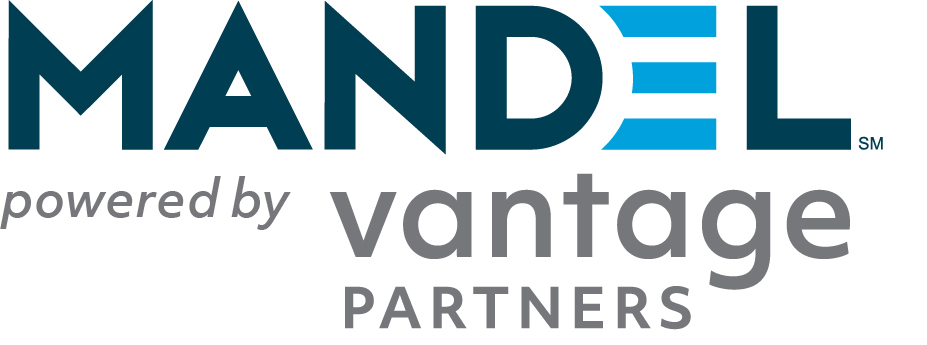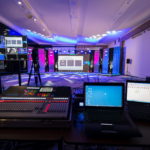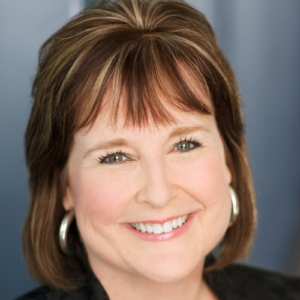Sales kickoffs (SKOs) serve many purposes, not the least of which is to motivate and inspire your customer-facing teams.
A successful SKO arms your sales teams with new and refreshed skills. They leave the SKO energized to engage with customers and win upcoming opportunities.
Yet, today’s virtual SKOs make the path to a successful event less clear. You have to share product information, impart skills, and inspire far-flung teams—in a world where everyone suffers from screen fatigue. When you focus on overcoming that fatigue, you can achieve virtual SKO success. And you can do that as you share communication skills honed for a virtual world. Let’s explore how engaging virtual SKOs can be a difference-maker for sales teams.
Tips for high-impact virtual SKOs
The Mandel team has contributed to a number of virtual events over the past 18 months. We’ve seen what works for both SKOs in general and for communication skills training during virtual events. Breaking through screen fatigue is key. Build the following fatigue-busters into your event to keep your sales teams engaged:
- Include participation: People pay attention more when the event/platform invites them to participate. Devoting a portion of time to small group labs is an additional option. Gamification of some aspect of the event is another. Include differing options in multi-day events to hold people’s attention.
- Adjust to your participants’ time zones: Webinar-style events at unusual times lead to boredom and zoning out. Hold events that align with people’s typical working hours. For global teams, that means holding multiple live events. Keep pre-recorded portions brief.
- Reinforce skills training with practice: Include small group practice sessions to bolster new skills and techniques. This not only helps build retention, it also gives people an energizing break from events built around extended listening to a presenter.
Rethinking what’s possible for a virtual event
You may be thinking that infusing a virtual SKO with participation and practice is impossible to implement. It is not! A Mandel client recently did exactly that. The company included instructor-led communication training with small group coaching in its virtual SKO. Yes, the logistical complexity required that the company’s sales enablement team tackle a challenge. And the payoff was huge. The company’s entire customer-facing organization learned, practiced, and reinforced skills at the same time. Skills retention soared, and that retention led to on-the-job use of new skills. On-the-job application in the sales world contributes to revenue attainment.
How did the company include instructor-led training with small group coaching in a two-day global SKO with 900+ participants? Plus, the company included many other typical SKO events in the two-day schedule—all while adjusting for participants’ time zones. Let’s look at how they did it.
Elements contributing to success
The company started with a clear vision: Deliver communication skills training to all customer-facing teams. Training had to include small-group practice to boost retention. That meant that the company had to choose a communications training provider with sufficient global coaching resources and a dedicated corporate logistics team. Not every training provider has the ability to lead multiple simultaneous training sessions on a staggered 24-hour schedule throughout the Americas, EMEA, and APJ. Trainers had to be able to adapt to time zone-based scheduling and cultural differences.
The company chose Mandel as its training provider for both our ability to manage global logistical challenges and our proven communication skills content. The Mandel team aligned our content to the company’s messaging and to the SKO’s theme. We worked closely with the company to ensure a smooth event. In the planning phase, both teams focused on addressing challenges. Working together, the teams came up with solutions collaboratively.
As part of the multi-day SKO, we successfully held 46 communications workshops for 900+ participants in 10+ countries. Participants came together for 2.5 hours of learning in groups of 15-20. They later came back in smaller groups of 4-5 for 90 minutes of individualized coaching in practice labs.
The critical success factor? Close communications across the internal logistics, global training, production, and client teams. But the participants are the true judges of training outcomes. They described the experience as “insightful, enlightening, engaging, and highly beneficial to their roles.” In fact, during the breaks in the schedule, several participants put their learnings to an immediate test with their own clients. They shared that: “This stuff really works!”
Learn more about nailing a virtual SKO
The example illustrates how participation, time zone adjustments, and skills reinforcement can be part of a large high-impact virtual SKO event. Looking to energize your sales team with new ideas? Let’s connect. Mandel can help you go big!







